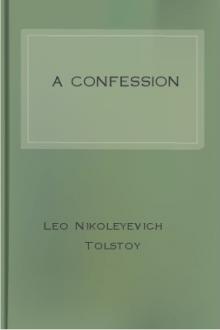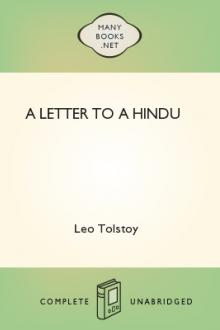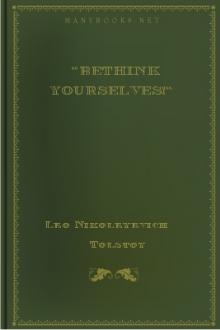A Confession by Leo Nikoleyevich Tolstoy (best sales books of all time txt) 📕

- Author: Leo Nikoleyevich Tolstoy
- Performer: -
Book online «A Confession by Leo Nikoleyevich Tolstoy (best sales books of all time txt) 📕». Author Leo Nikoleyevich Tolstoy
s of our present progress could justify this deed; and that though everybody from the creation of the world had held it to be necessary, on whatever theory, I knew it to be unnecessary and bad; and therefore the arbiter of what is good and evil is not what people say and do, nor is it progress, but it is my heart and I. Another instance of a realization that the superstitious belief in progress is insufficient as a guide to life, was my brother's death. Wise, good, serious, he fell ill while still a young man, suffered for more than a year, and died painfully, not understanding why he had lived and still less why he had to die. No theories could give me, or him, any reply to these questions during his slow and painful dying. But these were only rare instances of doubt, and I actually continued to live professing a faith only in progress. "Everything evolves and I evolve with it: and why it is that I evolve with all things will be known some day." So I ought to have formulated my faith at that time.
On
Free e-book «A Confession by Leo Nikoleyevich Tolstoy (best sales books of all time txt) 📕» - read online now
Similar e-books:





Comments (0)